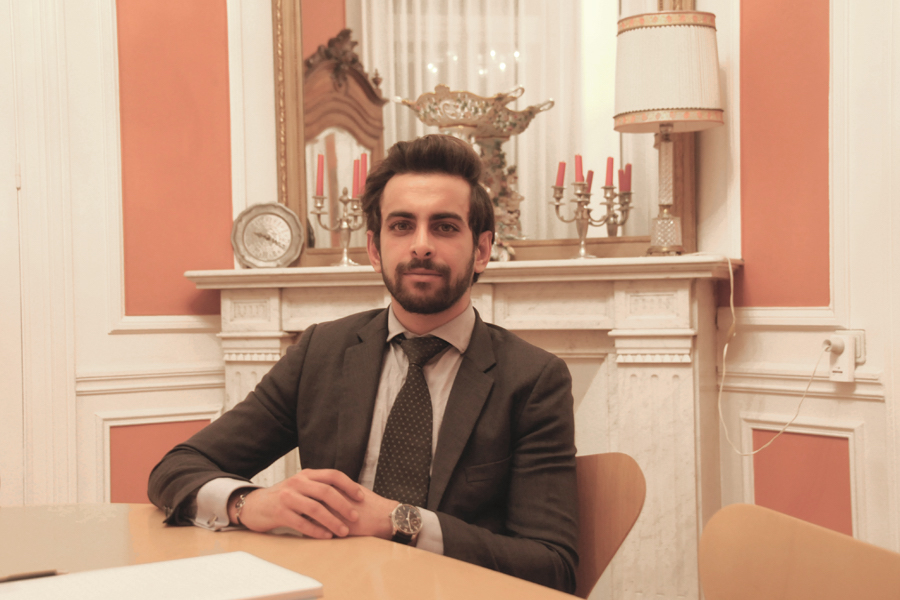

What do Berlin, Hong Kong, San Francisco and Luxembourg have in common?
All of them qualify as fintech hubs in their own right. Rewind a mere five years, however, and the Grand Duchy would not have made the list.
Thanks to a perfect storm of resources, financial-sector support and a push from the government, progress has happened at a blistering pace. Today, the country’s buzzing startup scene is firmly on the map.
“Now Luxembourg is trying to make up for lost time. We have all of the ingredients: the tools are here, the right state of mind, the will and the actors,” said Nazim Faid, Lawyer, Kaufhold & Réveillaud, Avocats, whose fintech clients give him a window into the growing scene.
The strong financial sector that set the stage for fintech success, ironically, also played a part in the country’s late start.
“Traditional financial actors had the logical reaction to fight against this disruptive innovation. They were apprehensive and didn’t fully trust fintech. The second reaction was to realize you can’t fight, you have to adapt. They both need each other,” he added.
The financial technology revolution arrived at a time when banking services across the globe were steadily homogenizing, and standing out became a constant battle. Faid believes that fintech will prove to be one of the sector’s most crucial differentiators: “If they don’t stay on top of it, they’ll fall behind. Today, all banks provide pretty much the same services. What most differentiates them is the quality of their customer services.”
Fintech is not something you can fight against. You either go with it or you get left behind.
By partnering with startups, banks achieve innovative solutions that ultimately lead to better service and happier customers. On the other hand, startups gain financing, representation and access to a huge client database, a goldmine in an already saturated market.
Everyone wins: the financial institution, the fintech startup and the customer.
Fintech is the natural result of a global technology revolution finally spilling over into an old-fashioned sector, but what does the term represent exactly? “It sounds so vague and obscure, but fintech is improving your daily life. It has an impact on both the front and back offices of banking services. It’s the banking app on your phone, or the reason transfer orders are automated and executed so fast,” Faid noted.
Despite initial concerns with data security and risk management, the world of traditional finance now recognizes that innovation is synonymous with survival. Internal innovation branches are becoming commonplace, helping organizations secure their futures.
Paris and Berlin’s successful transformations into startup hotspots created blueprints that paved the way for Luxembourg to follow suit — smoothly pivoting from one industry to another was already a trademark of the country’s long-term prosperity.
Credit for achieving the necessary momentum goes to the government. The CSSF — Luxembourg’s regulatory body — and the Ministry of the Economy boldly support the vision of a fintech future and have sent representatives around the world from China to California in order to promote this rising hub.
“Fintech is not something you can fight against. You either go with it or you get left behind. Banks can’t survive without it, so I believe Luxembourg’s future depends on it,” Faid explained.
Specifically, success hinges on attracting talent — convincing entrepreneurs to choose Luxembourg over Paris, for example — and financing is the key. The country’s tax and legal framework eases the journey for young companies as they launch and grow, but this demographic’s number one priority remains access to financing, a fact that has not gone unnoticed.
Take the €20 million Digital Tech Fund, which exists to invest in technology startups. Private accelerators and incubators, such as nyuko and lux future lab, offer entrepreneurs and young companies valuable networks, tools and resources. Pitching events and angel investor conferences peppered 2016’s local calendar.
“For my fintech clients, financing is always the biggest hurdle, although it’s getting better and better, but there’s still room for improvement. That will progress as existing actors trust the fintech industry more and are willing to finance those projects,” Faid said.
A lot is happening at all levels, especially compared to three or four years ago.
Through initiatives such as the Luxembourg House of Financial Technology, Luxinnovation and the Fintech Zone we see how both public and private entities are helping build a community of entrepreneurs to support one another and foster the right culture. As Silicon Valley and other hubs demonstrate, innovation is contagious and community is instrumental to success.
According to Faid, Luxembourg’s productivity on the fintech front is noteworthy: “People don’t talk about it enough, but if you look around you realize that a lot is happening at all levels, especially compared to three or four years ago.”
Another selling point is the CSSF itself, unique in its open solidarity with startups and willingness to help them succeed. It is no coincidence that Europe’s first bitcoin license was issued here. The nation’s small size versus its heavy arsenal of human resources ensures that the regulatory needs of even complex entities are quickly met. Licenses that take months in other countries, can take days here.
Efforts are paying off. Between 2012 and 2015 the number of e-money and e-payment institutions in the country tripled.
The recently introduced Simplified Sarl, a welcome mat for new businesses, allows one person with as little as one euro to create a company in one day, aka a 1-1-1 company. Further modernizations to Luxembourg company law improved corporate legal conditions by clarifying grey areas and boosting security, while maintaining flexibility.
Luxembourg’s start may have been late, but it definitely was not slow. Most importantly, the economies main influencers, from ministries to legislators to banks have joined forces to drive financial technology forward. As long as the client is important, innovation is too.
“If it’s good for customers, it’s good for everyone, so assuming things keep going like this, Luxembourg fintech has a bright future,” Faid concluded.
For more information on the financial technology industry, setting up a company or general inquiries, please contact: